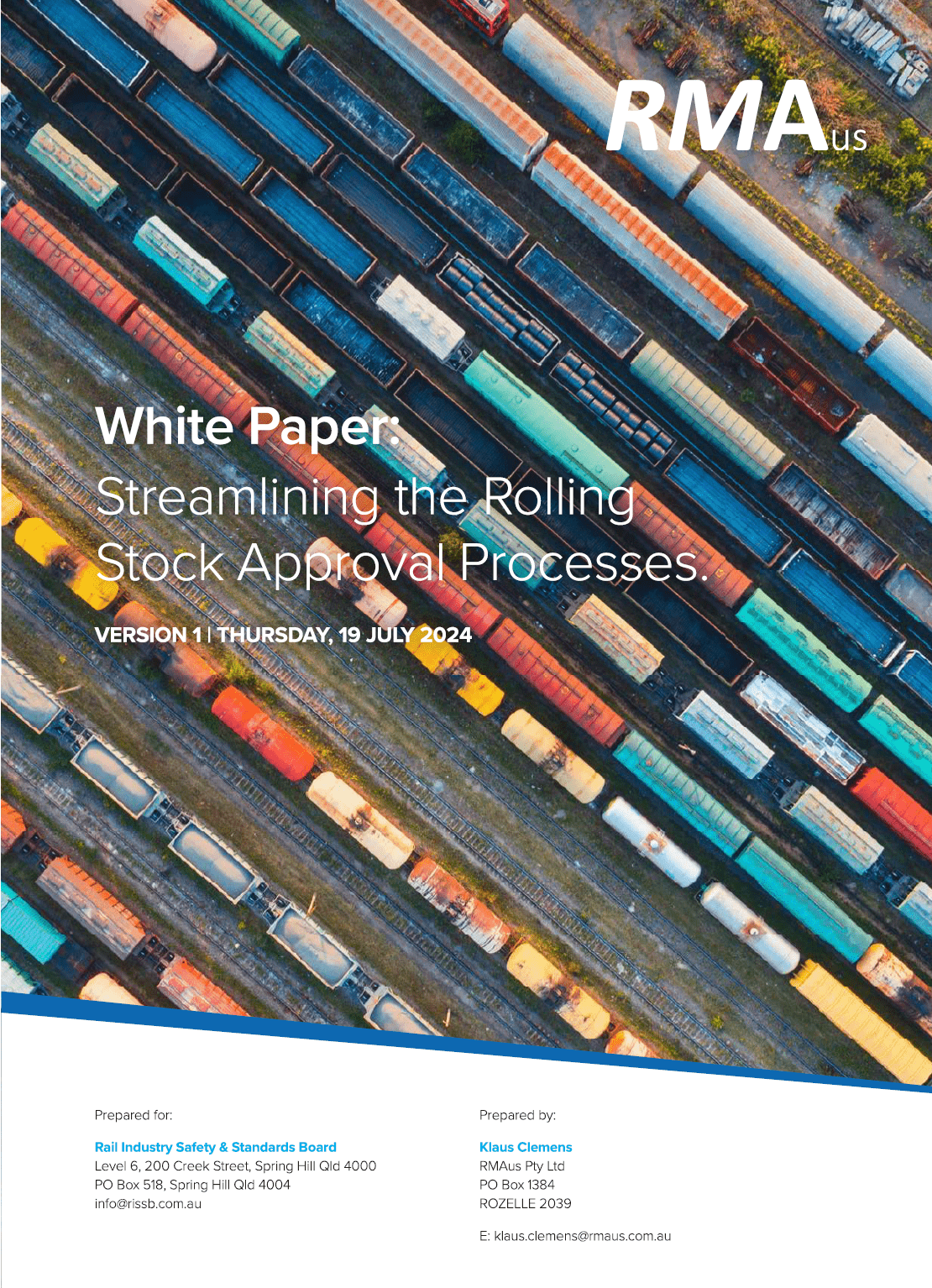)
Improving standardisation and enhancing interoperability across multiple interstate and intrastate networks.
The purpose of the White Paper
The primary purpose of this White Paper is to inform and stimulate debate in the industry on the rolling stock approval process. In doing so, it identifies existing good practice and opportunities to improve the efficiency and safety outcomes. The substantial issue that was raised by the industry was not with the registration process itself, but rather with the certification of rail vehicles. The Paper contains recommendations to address the concerns raised with rolling stock approval processes, through cooperation and coordination within the existing co-regulatory environment.
The issue raised by industry
Registering a railway vehicle to operate across the Australian rail networks involves multiple networks managed by different rail infrastructure managers and the train operators.
The multiplicity of approval processes to operate rolling stock across Australia has been identified by the rail freight industry as a major deterrent to investment and innovation. The substantial issue raised by the industry within the broader vehicle approval processes is largely related to the certification of rail vehicles rather than the registration processes.
The rail freight industry is seeking to streamline vehicle approval processes to reduce the administrative burden with transparent timeframes that hinders rolling stock utilisation.
Discussion points and recommendations
The Paper supports the further development and expansion of the national rolling stock register (NRSR) and procedures, being developed by RISSB, which will help improve standardisation and enhance interoperability across multiple interstate and intrastate networks. It puts forward a set of discussion points and recommendations for further consideration and will operationalise the work being undertaken by the National Transport Commission.
Highlights
Size of the task
Rail freight is the backbone of the Australian economy. The need for rail to play a greater role meeting the nation’s growing freight task and de-carbonisation is significant and urgent. Complexities and delays in the rolling stock approval processes significantly affect industry outcomes, including the investment in new technologies. Streamlining the rolling stock approval process is a considerable task with significant engagement with the key players involved....
Technical standards
It’s important that all rolling stock operating on the rail network meet the technical requirements to be compatible with the network infrastructure. Understanding the various standards at play within the rolling stock approval process and the risks that it is intended to mitigate is essential to understanding the challenges associated with the rolling stock approval processes....
Data requirements
Rolling stock data exchange is core to the conversation and is considered critical to managing operational risks. Having a mechanism to clearly define the data requirements, efficiently exchange that data, and make it available for the industry is essential for improving the rolling stock approval process. ...



